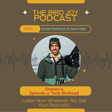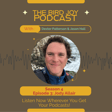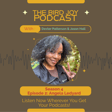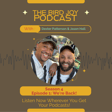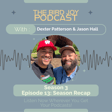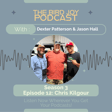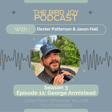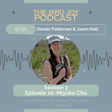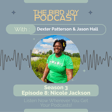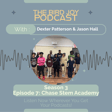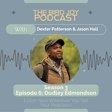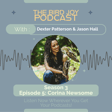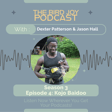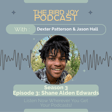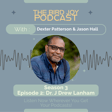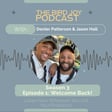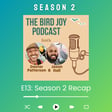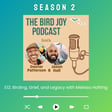
Urban Birding, Motherhood, and the Power of Community with Indigo Goodson-Fields
The vibe is SOOOO right this week with our homie Indigo Goodson-Fields. Indigo comes to hang with us from Brooklyn, NYC, where she is a birder, poet, bird guide, writer, educator, and bird model (with Bird Collective). We spend some time talking about how she curates her community in ways that enrich her own mental health as well as the community around her. This includes leading “Birding, Poetry, and Power” outings through Field Meridians as well as those more quiet and reflecting moments in Prospect Park or the Brooklyn Botanic Garden. We break down what it means to find your space and your community in nature, especially in the most well-known city on the planet. Indigo brings us inside the life of a new mother, navigating the caregiving responsibilities while still trying to find time to fill up one's cup in nature. This can be through the reflections on the intertwined lives of Eastern Bluebird and Brown-headed Cowbird mothers or the arrival of a special Yellow-breasted Chat in her local patch.
Join us this week as we find that unique Bird Joy with Indigo, and give her a follow if you want to get to one of her upcoming outings in 2025!
Be sure to follow our podcast on Instagram at @thebirdjoypod and subscribe wherever you get your podcasts.

